It is Friday, August 4th, 2017; it is my 63rd birthday, the last day of reading camp 2017. 108 children were served, 19 teachers trained, 630 books read, and over 500 art projects were made. As I worked sorting and packing materials at the school in Trewebo in a tiny, windowless room where even my sweat was dripping sweat, a question floated through my head. As sweat dripped in large drops from the end of my ponytail they seemed to punctuate the words. What. Drip. Difference. Drip. Do. Drip. Five. Drip. Books. Drip. Make? Drip. Drip.
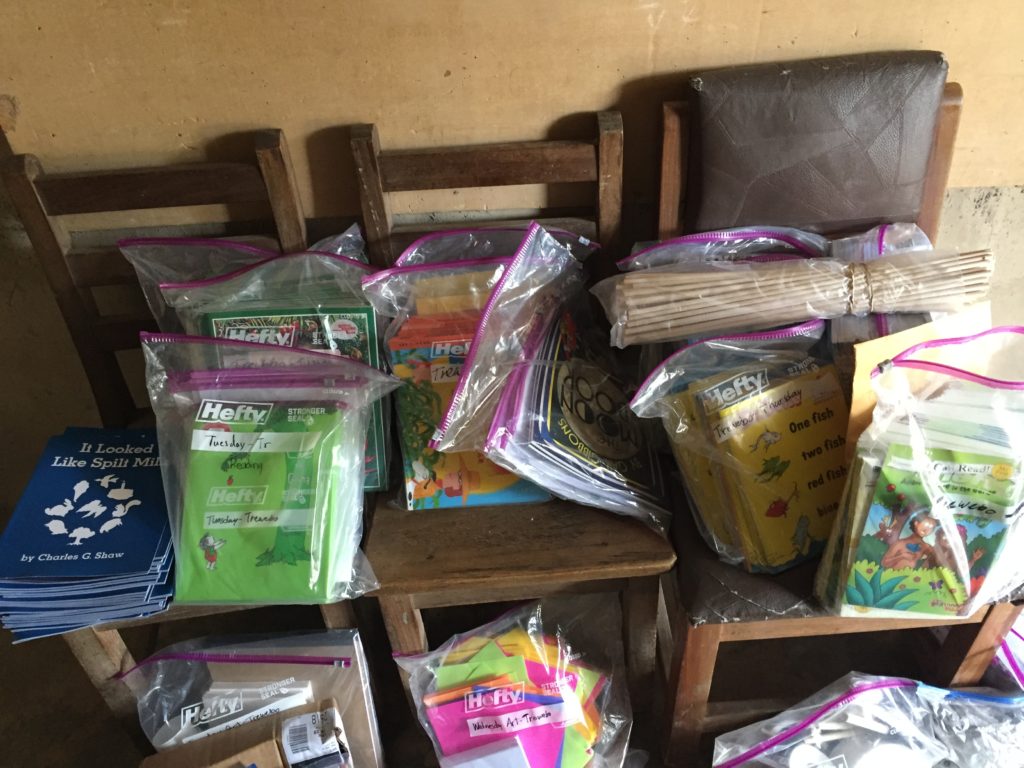
What difference indeed, can a week of instruction do to fill in the deficits created by archaic educational methodology, punitive correction and shaming for wrong answers, and a serious lack of teaching materials and books for children? Let me state unequivocally, that five books do make a difference. They really do!
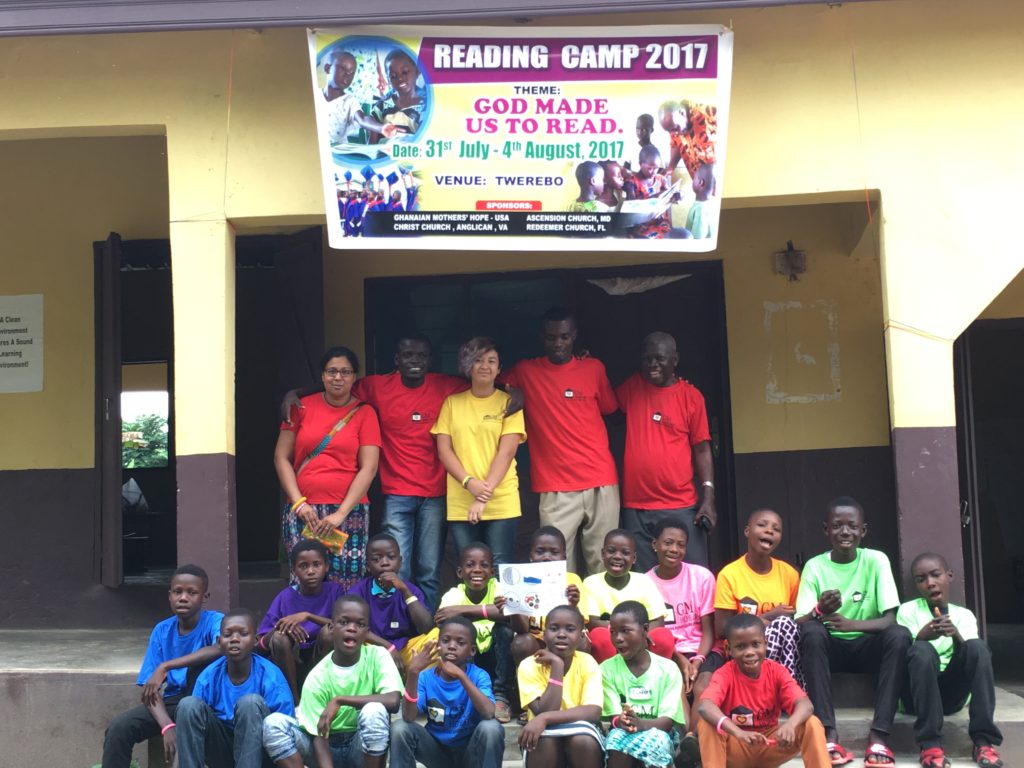
Five books may seem like a drop in a vast ocean to we westerners who have home libraries, Kindle libraries, school libraries, and public libraries. To children with no libraries, the gift of five books is the pearl of great price, books to read, books to learn with, books to learn from. Riches. Beyond. Measure.
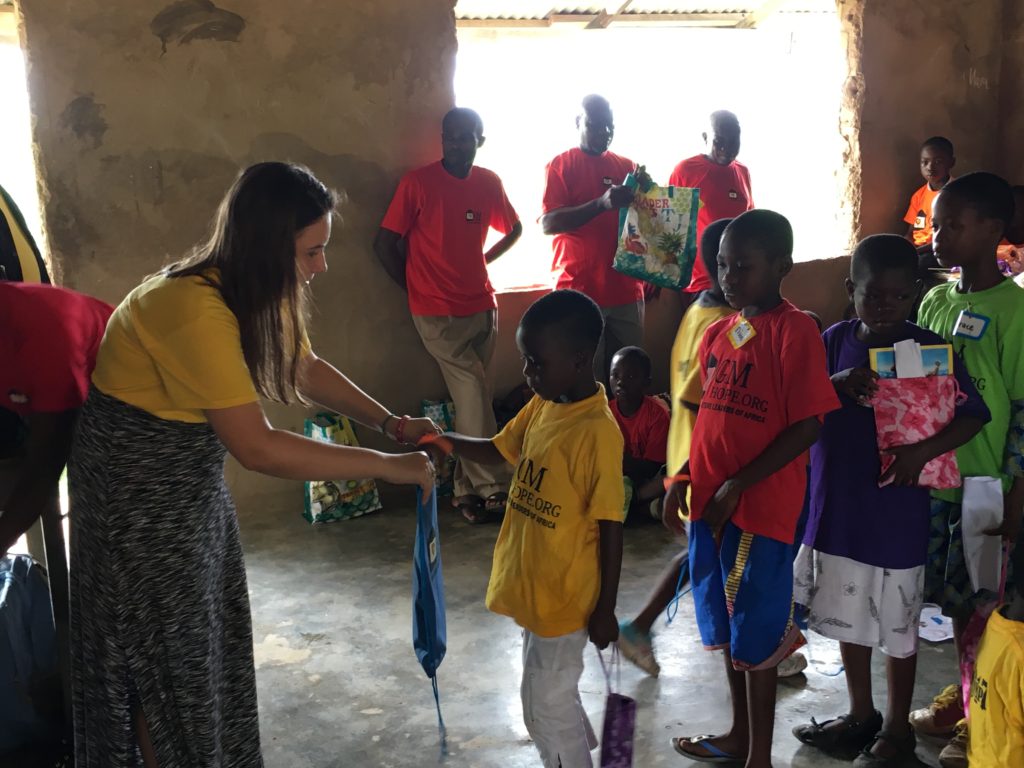
To the children those five books represent the reality that they can learn to read, and that reading is fun, and that loving, caring adults come to invest in them. Those five books represent hope that someday they might see where the “obruni” come from, that they might go to high school, that they might have a future and a hope past selling small wares along the street or shoveling sand to fill sand trucks. Hope wins.
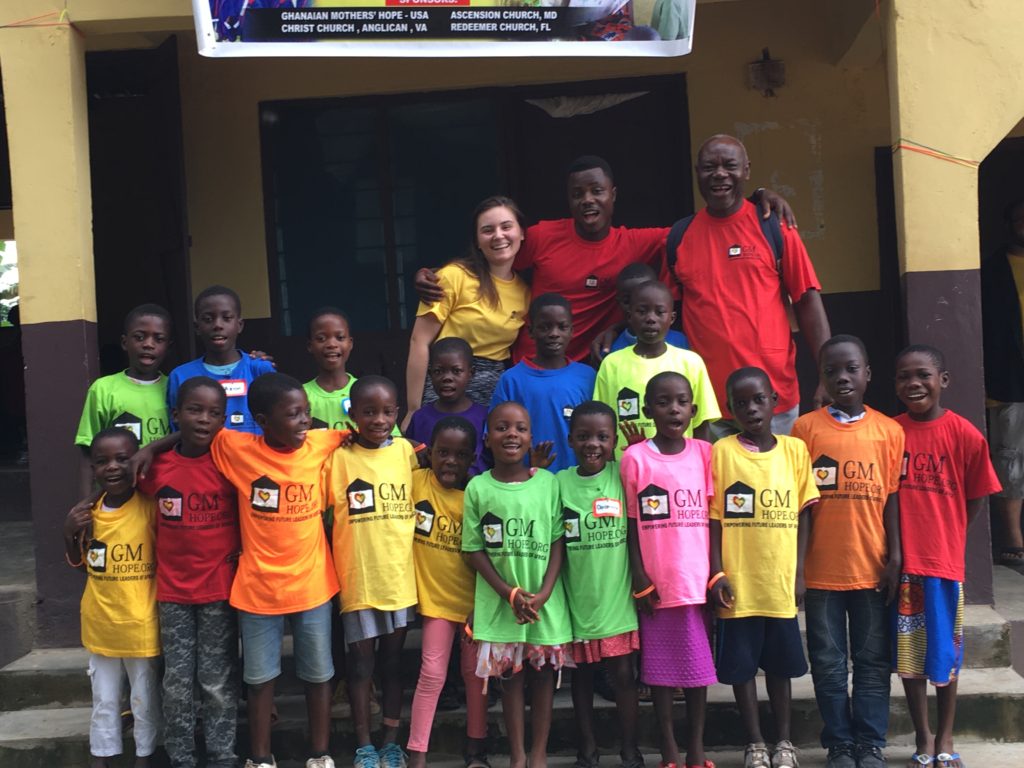
To the teachers those five books represent what they want to have for their students but cannot afford. Those five books mean good materials, a boost in morale, a promise that their dedication and commitment are noticed and appreciated. They mean comradery and mentoring, assistance and education, as we work to use positive, child-friendly teaching methodologies in working with the texts.
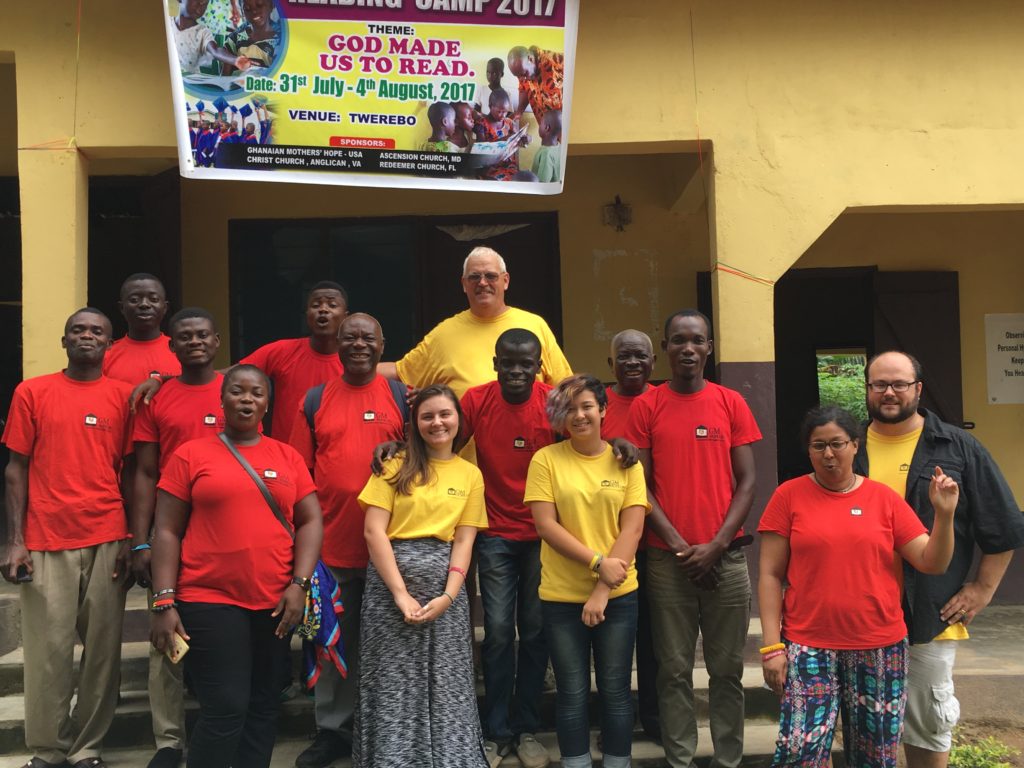
To the team those five books make an incredible difference as we experience the joy of seeing children move from a dread of reading to the love of reading. As Americans we are so often wealthy in material possessions but poor in Spirit. Ghanaians are often poor in material possessions and rich in Spirit. As we share our possessions with our Ghanaian friends, the Spirit is shared back with us. I am reminded of a line in an old Michael Card song, “When we look to one another, in an instant it is clear. Only Jesus is visible, and we both disappear.”
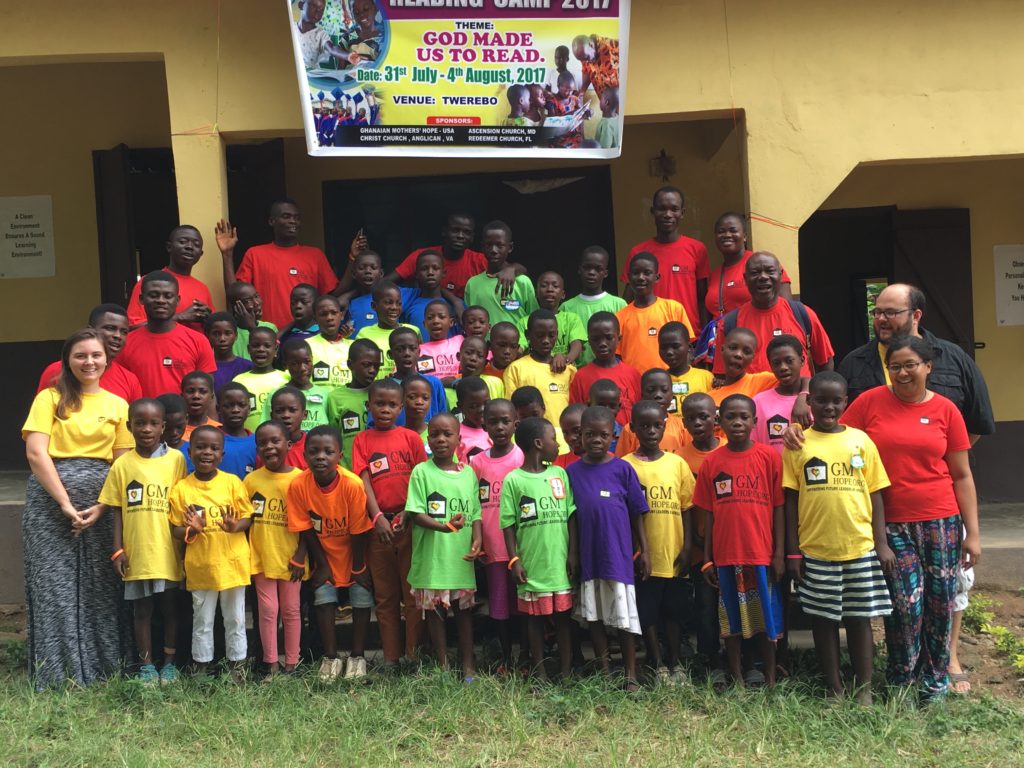
What difference do five books make? For the children, the Ghanaian teachers, and the team, five books give us the opportunity to bear one another’s burdens as the Apostle Paul dictates in Galatians 6. Love has a face. It is the face of hope, the face of joy. It is the face of teachers dedicated enough to sleep on mattresses on the floor of a church hall and hang hand washed laundry on plastic chairs. It is the face of Americans’ sweat drenched faces trying to figure out how to make things work when you have no clue how things work. It is the eager joy-filled faces of children who long to learn. Love has a face, and his name is Jesus, the one who loves the whole world so much that he laid down his life to save the lives of others. And sometimes, sometimes, his face is reflected in ours.

